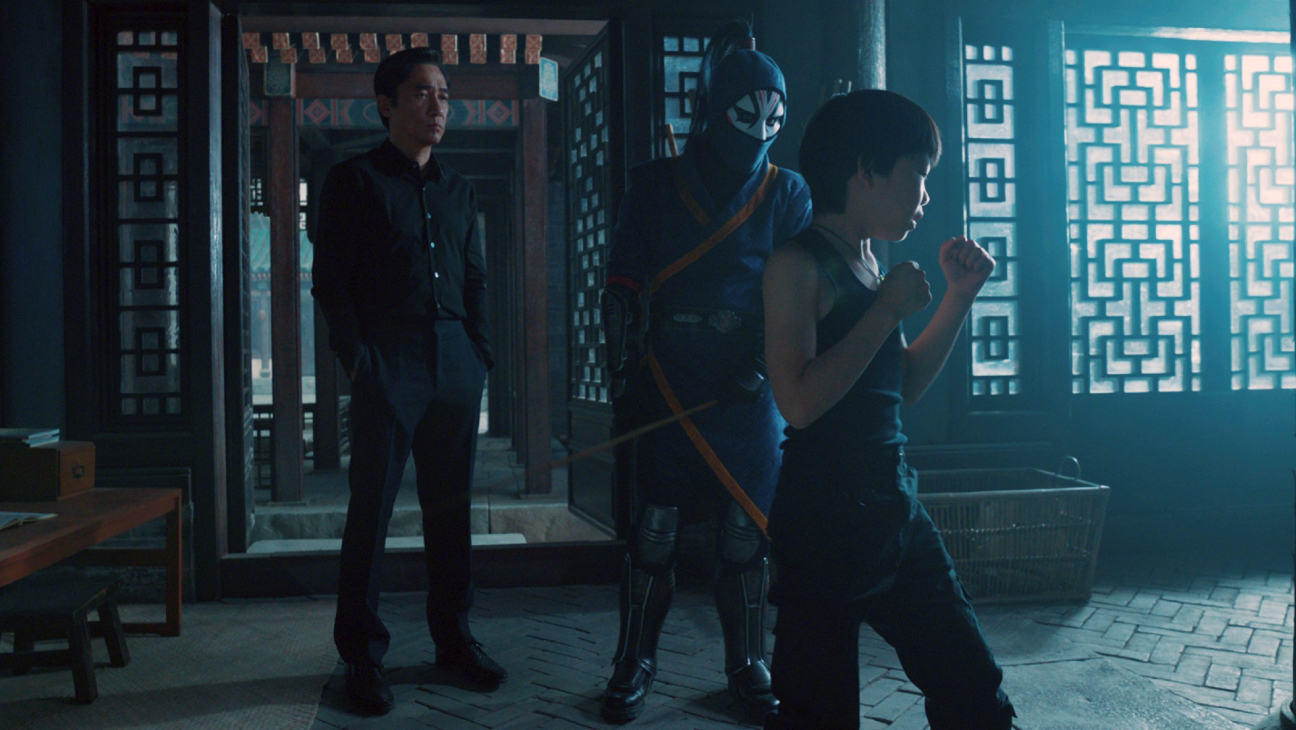
Another example of some of the cultural nuance lost in translation comes in a scene between Yeoh’s Ying Nan and Shang-Chi (Simu Liu) that takes place slightly after his arrival in Ta Lo. In it, Nan tells Shang-Chi “I’m proud of you.” (According to the English-language subtitles.) But, according to Reddit, the literal translation would be closer to “You are mom’s pride.” While this hits a bit harder emotionally even for those who don’t understand the Chinese cultural context of the phrase, Reddit user yawnandshrug elaborates: “It’s more than just saying his mum would be proud of him, there are connotations like ‘you are the pride and joy of your mum’s life’ and culturally stuff like that is just not said unless you are really close/really mean it. It’s basically short hand for saying that Shang-Chi’s aunt adores him.”
One of the most emotionally affecting scenes in the entire film is when Wenwu brings a young Shang-Chi with him to kill the men who killed Ying Li. Little Shang-Chi is left to watch as Wenwu slaughters all of them. After the bloodbath, he kneels down next to his son, mentions that there are others responsible for Ying Li’s death, and asks (via English subtitles): “Will you help me?” The translation leaves out the “baba,” an informal way of saying “father” in Mandarin, in the line that could be translated: “Will you help your dad?” As Reddit user Iris_Sun points out: “With ‘your papa’, Wenwu acknowledges his role as a father, and the position of his son. There’s a level of familiarity and kindness that you really only use with the people you love. Shang-chi is not a tool, but his child. There’s also the cultural implication of passing on one’s legacy; as in, will you help me by learning my line of work so that you might eventually take it over.”
There will always be something lost in translation; this is an inherent part of consuming stories across language and other kinds of cultural boundaries, and it is easy to accept when you realize the alternative. We’re lucky to live in a time when foreign-language entertainment is so accessible, and when big-budget Hollywood movies like Shang-Chi don’t have to eschew narrative logic that would have their characters speaking in their native language and/or the language in favor of speaking English.
“I can talk to the conversation behind which language should be speaking was always rooted in just the logic of the characters,” said Shang-Chi director Destin Daniel Cretton (via Heroic Hollywood) during a recent press conference. “And who would naturally be speaking what language. And so that conversation started in the writer’s room and then once our actors came in it was always a dialogue what these are all bilingual, trilingual, quadrilingual characters who could speak whatever made sense at the time. So, we were constantly having the discussion of what made sense for the scene.”
According to aforementioned Reddit user yawnandshrug (and mentioned in the original thread post), Shang-Chi has so many instances of these cultural nuances lost in translation not because the translation choices are bad but because the Mandarin-language dialogue is is so well written: “Tbh the mandarin used in the film is very authentic and often untranslatable without explaining the context behind the vocabulary. So I’m willing to give them a pass on that seeing as they made the effort to make the mandarin good.” If a storyteller is going to make a choice between writing good dialogue and writing easily translatable dialogue, this seems like the right one.
Shang-Chi is Apparently Even Cooler If You Speak Mandarin - Den of Geek
Read More

No comments:
Post a Comment